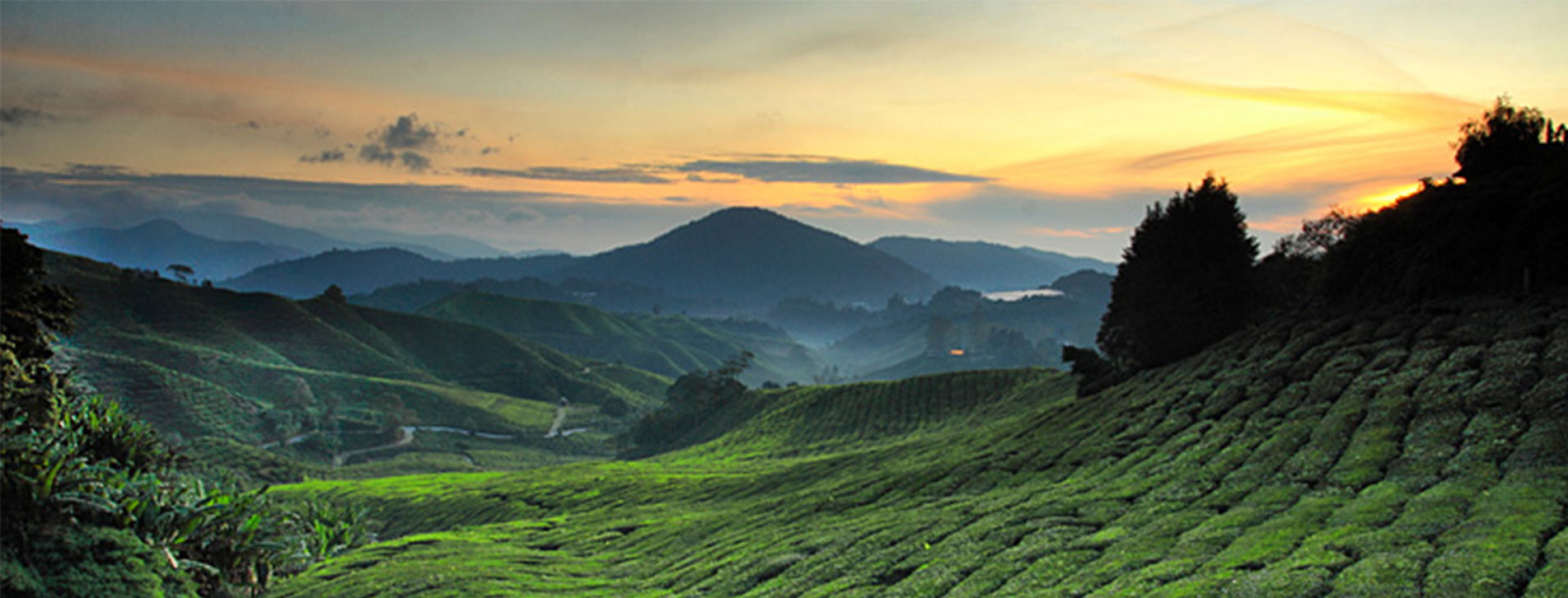Anchoring Safety
ELGi aids in the battle to prevent soil erosion in Cameron Highlands, Malaysia

About 125 miles from Kuala Lumpur, sitting at 4921 feet above sea level, is Malaysia’s largest hill-station area, Cameron Highlands. For over a century, this verdant plateau, with its abundant flora and fauna, has been a popular highland retreat. With temperatures ranging from 9 degrees to 25 degrees Celsius throughout the year, the tableland is a respite for those looking to escape the scorching Malaysian heat.
Cameron Highlands was discovered in 1885 by a British surveyor, Sir William Cameron. An idiosyncratic feature of British colonial rule was the establishment of hill-stations in tropical countries like India, Sri Lanka, Hong Kong, Myanmar and Malaysia. Hailing from cooler temperate regions, the British developed these secluded hilly areas as sanatoriums and vacation spots. The natural beauty and pleasant weather reminded expatriates of the English countryside.
A key event in the development of Cameron Highlands was the establishment of the Agricultural Experiment Station in 1925 to examine the feasibility of farming. The next year, a committee was formed to identify areas of the highlands for cultivation, housing and administration. A private firm was awarded a three-year contract to build a road to the plateau. The opening of the road in 1931 led to people moving in and settling on the mountain slopes. Tea plantations were established and vegetables grown. Within a few years, cottages, schools, a dairy, nurseries, a military camp and a golf course came up. The growth continued until Japanese occupation during the Second World War. After Malaysia obtained independence, extensive stretches of forests were cleared for agriculture and development resumed.
In recent times, the demands of tourism in Cameron Highlands have led to uncontrolled farming and deforestation. Highway and hillside development projects continue to be carried out in the undulating terrain, causing slopes to be ‘distressed’ over time. In this rainy region, the destabilisation of slopes increases the chances of landslides tremendously. The problem has plagued the area for several years now, endangering lives and drastically altering the topography of Cameron Highlands.
The Government of Malaysia has been taking steps to mitigate erosion with stabilisation projects underway. Commonly used retaining systems such as concrete walls require inordinate earthwork. Engineers have, therefore, opted to use the technique of soil nailing to strengthen slopes. Soil nailing, as a remedial technique for stabilizing slopes, is said to have been applied first in 1972 in France. It is now used around the world. This method has grown popular because of its ease of implementation and little subsequent maintenance.
The basic concept of soil nailing is to reinforce and strengthen the existing ground by installing closely-spaced steel bars, called ‘nails', into a slope as construction proceeds from 'top-down'.This process creates a reinforced section that is stable and able to retain the ground behind it.
ELGi provides compressed air solutions to North Soil Engineering, a Malaysian firm, currently in charge of slope stabilisation projects in Cameron Highlands. Soil nailing employs compressed air to accelerate steel rods or nails into the ground at over 200 mph. A high velocity shock wave is generated ahead of the nails that elastically deforms the soil, which subsequently rebounds and bonds with the nails. North Soil Engineering finds that ELGi’s diesel-powered air compressors meet the demand for faster drilling and ensure higher productivity at a lower per-foot drilling cost. In addition, our air compressors play a pivotal role in grouting and cement blowing procedures.
With a population of over 40,000 and thousands of tourists making their way to Cameron Highlands all year round, this project is critical for preventing landslides, safeguarding lives and keeping the beautiful slopes of the ‘Camerons’ intact.
Sources:
http://publishing.cdlib.org/ucpressebooks/view?docId=ft396nb1sf&chunk.id=d0e116&brand=eschol






